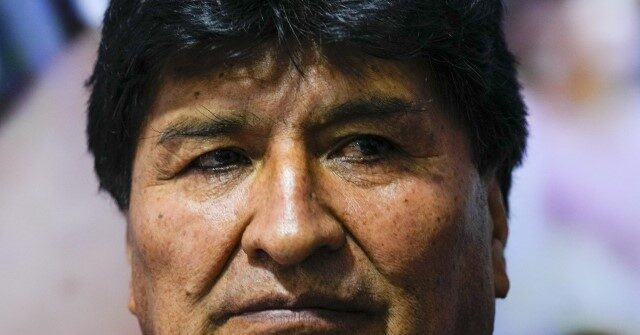Over the weekend, Bolivia’s Plurinational Constitutional Tribunal (TCP) delivered a significant ruling, upholding the country’s constitutional term limits for public office holders. This decision effectively prevents the former socialist president, Evo Morales, from pursuing a fifth term in the upcoming 2025 elections. Morales, who led Bolivia for four consecutive terms from 2006 until his resignation in 2019, famously circumvented the established two-term limit through a combination of questionable legal maneuvers and political manipulation. His controversial ascendancy was facilitated by a ruling from the TCP in 2017 that claimed the term limits infringed upon his human rights, a decision now overturned by this latest verdict from the court.
The Bolivian Constitution, which came into effect in 2009 during Morales’s presidency and the rise of his ruling party, the Movement Towards Socialism (MAS), explicitly stipulates that a president can only serve two terms of five years each, whether those terms are consecutive or not. This constitutional framework is intended to prevent any single individual from maintaining prolonged control over the country’s governance. The TCP’s recent ruling reaffirmed the constitutional basis for these limits, clarifying that the presidency cannot be extended beyond the two-term maximum. The court emphasized that its purpose is to prevent the indefinite continuity of any elected official in power, echoing the principles of democratic governance.
While Morales has publicly stated his intention to run for office despite the rulings against him, he faces a significant political schism within the MAS party itself. A power struggle has emerged between Morales and the current president, Luis Arce, who is seen as a former ally turned rival. This internal rift has escalated over the past year, with both factions attempting to assert control over the party. On the day of the court ruling, Morales rallied his supporters, claiming the need for unity while hinting at his plans to mobilize supporters to march in La Paz as part of an effort to campaign for his candidacy in 2025.
Compounding the political turmoil, Morales is under investigation regarding serious allegations, including statutory rape and human trafficking linked to incidents that allegedly occurred during his presidency. Investigative reports have indicated that Morales was involved with a 15-year-old girl, Cindy Vargas, with whom he reportedly fathered a child. The investigation into this troubling case has led to Vargas and her child being reported missing, raising concerns about their safety. Morales’s legal challenges are further compounded by evidence of his attempts to avoid arrest, as he has retreated to his political stronghold in Cochabamba, where he remains protected by loyal allies.
In addition to the investigation in Bolivia, Morales faces scrutiny from Argentine authorities, where he lived temporarily after resigning in 2019. Allegations surfaced regarding his cohabitation with minors in Argentina during that time, a claim further substantiated by the testimony of a former associate who described the minors living in his residence in a disadvantaged capacity. Morales’s stay in Argentina was initially sanctioned by refugee status, which has since been revoked under the current administration of President Javier Milei. This international context adds another layer to the challenges facing Morales, as he navigates both domestic legal issues and international repercussions from his past.
While Morales remains a controversial figure in Bolivian politics, with a fervent base of support, the complexities of his situation epitomize the difficulties that arise when leadership is intertwined with legal and ethical controversies. As various investigations unfold, the social and economic impact of Morales’s actions continues to resonate throughout Bolivia. The recent blockades organized by his supporters illustrate the potential for unrest as political tensions mount, causing significant disruptions to the country’s economy and impacting the daily lives of Bolivians. Moving forward, the evolving political landscape, marked by a push for both adherence to constitutional mandates and accountability for past actions, will be crucial in shaping Bolivia’s democratic future.

